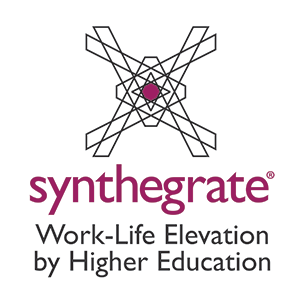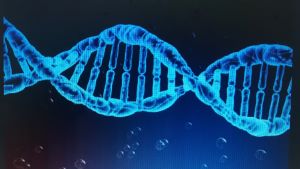Self transcendence is the ultimate fulfillment. Perpetually working on it.
Synthegrate.com features the research, writings, and opinions of Brent Duncan, Ph.D., focusing on the below knowledge areas. While I build the site, the content is open for personal use only. Using the information on this site for anything but personal use is strictly prohibited without written permission from Brent Duncan, Ph.D. For usage information, please contact me through the synthegrate® Contact Form.
Adult Learning and Development CenterTranscending potential through academic and professional development
No single approach or theory seems to adequately address the diverse abilities and needs of adult learners, the multiple mission of institutions, and the changing needs of society. Rather than imposing myopic philosophy, adult educators can be more effective by adapting practice to the dynamically interacting needs of the student and environment.
- Review the emerging practice of adult education from its historical foundations, disparate perspectives, and emergent practices.
- Identify research-based principles of adult education leading to effective educational programs that meet the learning needs of individuals, organizations, and society.
- Integrate disparate perspectives to change behavior, develop capacity, construct knowledge from experience, transcend potential, and prolong creative longevity through academic and professional development.
Dynamic Interactive AdaptabilityYour guide to promoting growth, resilience, and wellness in turbulent times
Even though contemporary dialogs tend to say that stress is a global killer disease cognitive-transactional theories demonstrate how stress is an adaptive response that is mediated by individual characteristics and psychological processes. Also, the system's framework shows that stress is more than a basic survival mechanism, it is also a vital catalyst for development, growth, and wellness.
- Explore the history and research that underlies the contemporary understanding of stress to determine if stress can serve a functional purpose for human and social systems.
- Identify functional coping strategies that foster growth, adaptability, and wellness in a dynamic environment.
- Discover dynamic interactive adaptability model of stress that integrates observations and findings from philosophical, stimulus-response, cognitive-transactional, and systems frameworks to understand how the relationship between environment and human affects development and wellness.
In short, stress is essential for survivability, growth, performance, adaptability, and wellness.
Goal SettingThe most proven motivation and performance tool is in your grasp, with caveats
Goal setting is so thoroughly established as a highly effective tool for motivating individuals and organizational action toward desired outcomes that we rarely ponder the dark side of goal setting. In short, goals can motivate unethical behavior as well as performance.
- Discover research findings showing both the benefits and risks of goal setting.
- Explore how understanding the risks and benefits of goals might help employees and managers more effectively apply goal setting.
- Consider a situational approach to goal setting that allows managers and employees to set the correct type of goal to match the context.
Human DevelopmentTranscending potential through academic and professional development
Philosophical myopia seems clear when exploring competing perspectives on human development. The field of human development seems to view the world through scores of philosophical "isms", with each philosophy representing itself as the only correct philosophy, and automatically dismissing all others. While an oversimplification of reality, let's consider the three dominant lenses: The human as a machine, the human as an organism, and the human as the context. We will discover that each lens alone is inadequate; the human is synthesis: all of the above and then some.
- Summarize the historical and emerging state of the field of human development.
- Explore Human Development lenses and related practices in education and management.
- Synthesize disparate perspectives into an integrated approach to personal and collaborative growth.
Leadership PerspectivesSynthesizing leadership perspectives to enhance organizational performance
Leadership literature introduces a confusing bevy of definitions for questions people have pondered since the beginning of civilization and scholars have explored scientifically for more than a hundred years. Attempting to add yet another definition would not clarify an elusive concept, but analyzing leadership through various perspectives might help provide insight into a complex phenomenon.
- Consider different understandings of leadership from ancient times through contemporary dialogues.
- Summarize the traditional and contemporary theories that have emerged through the scientific study of leadership.
- Explore emerging perspectives that apply discoveries in neurological psychology and complexity theory to understand leadership more in-depth.
Learning PerspectivesTranscending potential through academic and professional development
In an increasingly dynamic context with highly diverse student populations, educators can increase effectiveness by expanding perspective and approach beyond methodological myopia to develop adaptive methods through methodological integration.
- Review competing perspectives on learning, from the classical foundations of rationalism and empiricism through the traditional classifications of learning theory-- behaviorism, cognitivism, humanism, and constructivism.
- Understand the foundations of historical and modern learning practice, and illuminate the practices that may best serve learner and context.
- Integrate disparate perspectives to change behavior, develop capacity, construct knowledge from experience, transcend potential, and prolong creative longevity through academic and professional development.
- Synthesize disparate perspectives of learning to discover best practices in education.
Organizational SystemsEnhance resilience, adaptability, and performance in turbulent environments
Discover integrative practices for leading dynamically interacting individuals, groups, and processes to enhance organizational resilience, adaptability, and performance in turbulent environments. Organizational Systems focuses on these areas:
- Effectiveness. Explore the link between organizational identity and organizational effectiveness >
- Learning. Discover the link between your organization's learning competency and strategic effectiveness >
- Performance. Find the connection between environmental fit and organizational performance >
- Perspectives. Learn historical and contemporary perspectives on organizational development >
Social PsychologyUnderstanding people in context
Escalating complexity in a global society is generating a new dimension in perpetual human pondering about how to understand the self in relation to others. Continuously facing dynamically shifting cultural environments, people may wonder why others are different or the same, why people say what they say and do what they do and if behaviors are the consequence of individual decisions or unseen forces.
- Explore the history, theoretical frameworks, research methods, competing theories, and controversies of social psychology.
- Understand the relationship between the individual and others so they can explain the dynamic mutual influences in social phenomena.
- Uncover controversies in social psychology that influence our daily lives.
- Synthesize learning from the field for applications and interventions on social issues.
Team LearningTapping the power of teamwork to enhance student performance and satisfaction
Building an effective team requires managing group dynamics to achieve shared goals, satisfaction, and continuance. Can we apply teamwork in the classroom to increase our learning and satisfaction at school? How can the teamwork skills we develop contribute to success in our careers? The Team Learning section contains the following sections:





